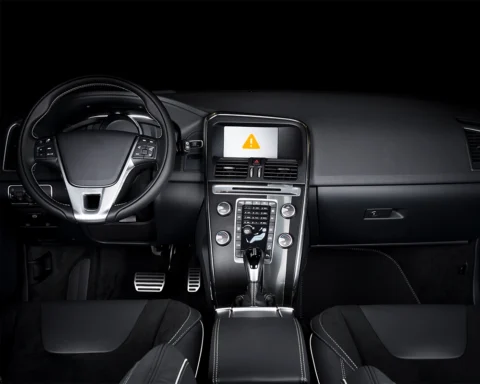Prioritizing Safety in Every Drive
In today’s world of high-speed travel and increasing traffic complexities, car safety features are no longer just optional add-ons—they’re lifesaving essentials. Whether you’re a daily commuter, weekend traveler, or occasional road-tripper, equipping your vehicle with the right safety technology can make all the difference.
Here’s a rundown of the top 10 car safety features you should never ignore when buying or maintaining a car.
Anti-lock Braking System (ABS): Preventing Skids and Collisions
ABS helps drivers maintain control of the vehicle during sudden stops by preventing the wheels from locking. It’s especially critical during rainy weather, wet roads, or emergency braking situations where control is everything.
Electronic Stability Control (ESC): Mastering the Unexpected
ESC automatically applies brakes to individual wheels and helps prevent skidding or loss of control. This feature is particularly beneficial during sharp turns, evasive maneuvers, or when driving on slippery surfaces.
Airbags: Your Invisible Shield
Modern vehicles come equipped with front, side, curtain, and even knee airbags. These act as a cushion in the event of a crash, dramatically reducing the risk of severe injuries and saving countless lives every year.
Blind Spot Monitoring: Expanding Your Vision
Changing lanes becomes safer with this tech-driven feature that alerts drivers when another vehicle is in their blind spot. It’s a game-changer for city driving, highway cruising, and parking in tight spaces.
Rearview Camera and Parking Sensors: Reverse with Confidence
Backing up is one of the most common causes of minor accidents. A rearview camera, often paired with parking sensors, provides a clear view behind your vehicle, making reversing easier and safer.
Adaptive Cruise Control: Intelligent Speed Management
This system automatically adjusts your car’s speed to maintain a safe distance from the vehicle ahead. It not only reduces driver fatigue on long trips but also enhances overall highway safety.
Lane Departure Warning and Lane Keeping Assist: Staying in Your Lane
These systems notify you if your car begins to drift out of its lane without signaling. Some vehicles also provide steering input to gently guide you back, minimizing the risk of side-swiping or off-road accidents.
Forward Collision Warning and Automatic Emergency Braking: Early Reaction Saves Lives
By detecting imminent crashes and activating brakes automatically, these features reduce the severity—or even prevent—front-end collisions. It’s like having an extra set of reflexes watching the road with you.
Tire Pressure Monitoring System (TPMS): Prevent Blowouts Before They Happen
Underinflated or overinflated tires can lead to poor handling and even blowouts. TPMS alerts drivers when tire pressure drops, ensuring optimal performance, fuel efficiency, and safety.
Driver Attention Monitoring: Alertness Matters
Some newer vehicles come with systems that analyze steering behavior and driving patterns to detect fatigue or distraction. If signs of drowsiness are detected, they trigger alerts, helping drivers stay focused and avoid potentially dangerous situations.
Safety Features Are Not Optional—They’re Essential
While performance, style, and technology often steal the spotlight, it’s the safety features that truly define a smart vehicle purchase. Investing in a car equipped with these top 10 safety systems isn’t just about protecting yourself—it’s about safeguarding everyone who shares the road with you. Make informed decisions, choose vehicles with robust safety tech, and drive with confidence, knowing your car is built to protect.
Drive Smart, Drive Safe: Your Road to Protection Begins Here







